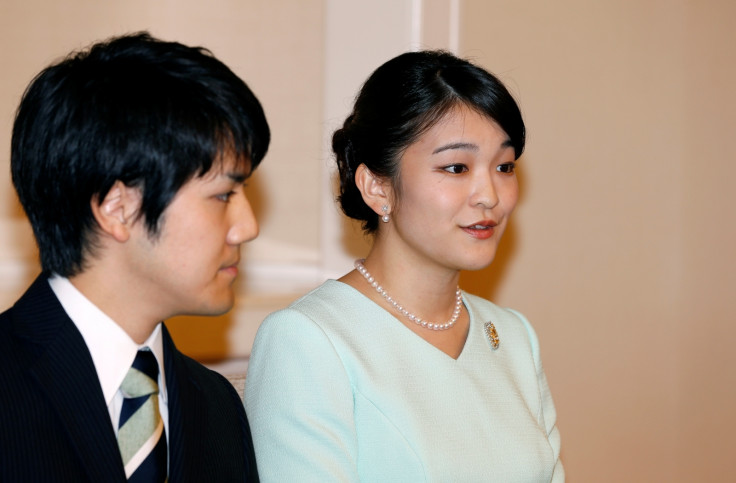Princess Mako diagnosed with PTSD ahead of wedding; suffered 'prolonged and repetitive instances of slander'
The royal found it challenging to correct what was written and said about her, and felt that she was losing her human dignity.
Princess Mako of Japan, the ninth female member of the Imperial family to give up her royal rights and inheritance to marry a commoner, had to go through a long ordeal in order to be able to have the marriage of her choice. While the date of her wedding with fiancé Kei Komuro has finally been announced, it has been revealed that the royal has ended up with post-traumatic stress disorder (PTSD) due to her experience.
The Princess has been unwell since 2018, a year after her and Komuro's engagement and the year they were initially supposed to tie the knot. As the wedding was postponed due to a financial dispute involving Komuro's mother and her ex-fiancé, Mako was diagnosed with a complex form of PTSD caused by psychological abuse of her and Komuro and their families, as per Royal Central.
Tsuyoshi Akiyama, the psychiatrist who diagnosed Mako, said complex PTSD develops as a response to repeated trauma experiences like verbal abuse and cyberbullying. Akiyama said that Mako was "subject to prolonged and repetitive instances of what she felt as slander against her and her family as well as her future husband and his family, and she had been unable to escape from it."
Akiyama said a problem, that began in 2018 and 2019, was that her desire to "live a peaceful and happy life after marriage" was unattainable. She also found it challenging to correct what was written and said about her, and felt that she was losing her human dignity while also feeling worthless at times.
The royal now suffers flashbacks over the slander and "feels pessimistic and finds it difficult to feel happy due to the persistent fear of her life being destroyed."
Despite the new diagnosis and troubles surrounding Komuro and his family's finances, the couple will finally wed on 26 October without the traditional imperial ceremonies. They will hold a joint press conference before registering their marriage, after which they will relocate to the United States where Komuro is employed in a New York law firm.
The traditional ceremonies are being skipped as Mako's father, Crown Prince Akishino, believes that they should not be held because many Japanese people do not support the union. Though the Crown Prince had shared his support for the marriage in November last year, a close friend of his claimed that not allowing these rites is "almost equal to disowning Princess Mako" for the heir to the throne.
Though there will not be a traditional ceremony, Princess Mako will publicly receive the royal approval of her marriage when she will meet her uncle and aunt, Emperor Naruhito and Empress Masako. According to Yasuhiko Nishimura, grand steward of the Imperial Household Agency, the monarch couple "wish that (the couple) will have a happy life in the future."
The Princess will also meet her grandparents, Emperor Emeritus Akihito and Empress Emerita Michiko, and visit the Imperial Palace Sanctuaries, which enshrine the spirits of the Imperial Family ancestors, but her new husband would not be accompanying her for this.
After her marriage, Princess Mako will also become the first female member of the family in the post World War II era to not receive a lump-sum payment from the Japanese government which they are entitled to upon their wedding or the traditional rites.
Princess Mako and Komuro started dating after they met at university in 2012, and announced their engagement in 2017.

© Copyright IBTimes 2025. All rights reserved.





















